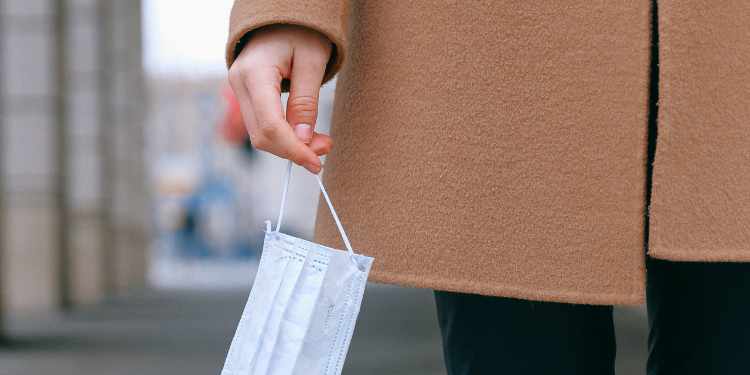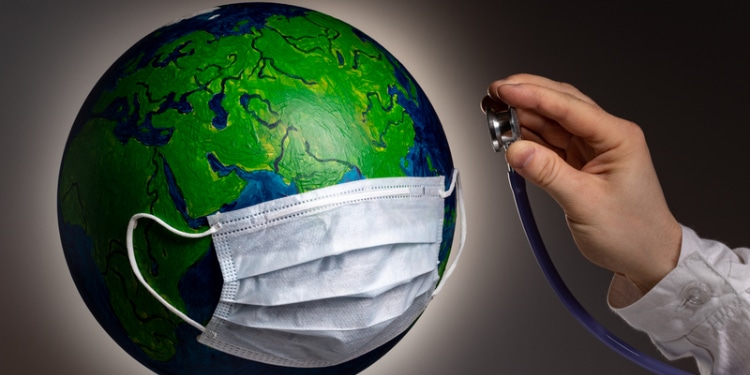









Although the coronavirus will have long-term effects on everybody in the United States; its biggest impact will likely be felt by the youth of America. Young people are currently forming their identities and have most of their lives ahead of them. Adults, on the other hand, will likely resist change and fall back on their old habits. After all, you can’t teach an old dog new tricks. But for older children, who can understand the gravity of the situation, the following lifestyle and psychological changes resulting from the coronavirus will likely become their new normal.

People who grew up during the Great Depression tended to be anxious about money because they saw their families struggle during their youth. Similarly, young people who experienced the coronavirus outbreak are likely to worry a lot about their health and catching a disease. On the positive side, this will potentially lead to good hand washing and personal hygiene. They may also pay more attention to their general health. On the downside, it may also lead to increased clinical anxiety, germ phobia, and germ-related Obsessive-Compulsive Disorder (OCD).
Speaking of health, COVID-19 could have varied—and very different effects—on how youth approach physical fitness. A consequence of coronavirus restrictions is more time spent in the home. That means less physical activity outside and at gyms. What’s more, gyms tend to be Petri dishes for germs. This could lead people to find other outlets for physical fitness or to not exercise at all. On the flip side, some people may want to exercise more in order to inoculate themselves against disease and boost immunity. While that may not happen at the gym, it could lead to more home exercising or individual outdoor activities, such as biking where it is easier to practice social distancing. Unfortunately, for many, it will just mean a more sedentary lifestyle and increased health problems. Let’s face it; playing video games doesn’t burn many calories.
Most adults lament that the youth of today are more socially isolated than in the past. The emergence of the Internet, social media, and all-encompassing video games has led to much less personal contact than in previous generations. While teenagers and young adults might argue that they simply socialize differently, they share less face-to-face time with others. One consequence of increased isolation is poorer social skills. When you are unable to see people in person, you don’t learn how to properly interact with them. As a result, young people will have inhibited social abilities. For example, we have all seen teenagers out with their families staring into their phones instead of exhibiting prosocial interaction.
Another consequence of isolation is increased anxiety and depressive symptoms. People need to interact with others for reassurance and support. When you feel cut off from the rest of the world, you feel lonely and tend to fill your head with worry and negativity. You might argue that this generation was already headed toward a more isolated existence, but coronavirus is sure to speed up the process.
This can be a scary time for youth, especially if they know someone who falls ill. It would not be surprising to see young people make more guarded personal choices to combat the feelings of insecurity they have had to experience during the outbreak. They are also more likely to request reassurance from caregivers and generally feel less safe overall. Further, because the outbreak is leading to difficult economic conditions, youth may be more anxious about having money and building a financial safety net as they approach adulthood.
Due to COVID-19, there is talk about banning handshakes forever. While that may not actually occur, there is definitely more wariness about unnecessary casual physical contact. You might be thinking: “What’s the big deal?” but physical touch is important. It aids in proper development and has positive psychological and physical effects. Think about it. What would the world be like without hugs and other forms of affection? Feeling the touch of another human being is so critical that there are people who are paid to cuddle with others who desire physical affection. Unfortunately, younger generations will likely experience a world with less contact and they will be worse off for it.
The coronavirus is undoubtedly going to further increase the reliance on the Internet. You can make a convincing argument that the world would be in a much more dire position without it. Online education, work, and shopping had already been increasing in popularity and COVID-19 has further shown us its importance. While the Internet was once considered a convenience, it will now be viewed more like a necessity. Of course, spending more time online leads to less face-to-face contact and more of the negative consequences of isolation.
In addition, as we become more dependent on the Internet, there is an increased possibility of Internet addiction and family disconnection. On the bright side, technology will allow our youth opportunities that were not previously available. For example, telehealth including online therapy—is an important resource that will likely be expanding. As with most things, technology cuts both ways; it can be a valuable asset but it does not come without some drawbacks.
Statistics say that depression and self-harm were already surging in young people. Adding the anxiety, insecurity, isolation, and difficult home conditions brought about by COVID-19 is likely to fuel even more depressive symptoms. Indeed, research has already found an association between increased Internet use and depression. For children, one of the most dangerous parts of the coronavirus restrictions is the boredom associated with being stuck at home. Youth need structured activities and a sense of purpose. When bored, they are prone to negative thoughts and influences that can lead to depressive feelings and maladaptive behavior.
Hopefully, the COVID-19 outbreak will only last for several months. Even then, however, the experience will likely have a permanent impact on the lifestyle, thinking, and emotions of our youth. It is important to check in with your children. If you see a young person struggling with the consequences of the coronavirus please offer them the required support, and if needed, seek professional help.